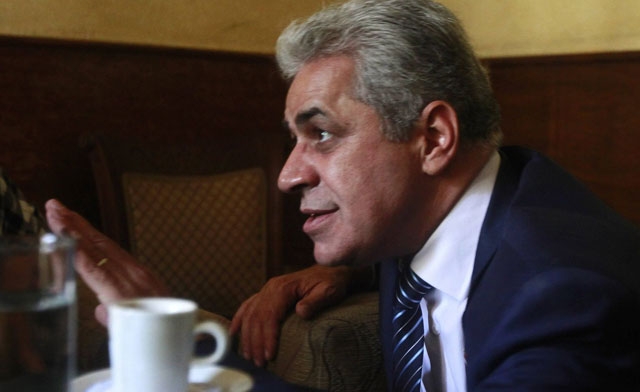CAIRO: It’s official: the World Health Organization (WHO) has declared the outbreak of the A H1NI flu pandemic just as Egypt announced its eleventh and twelfth cases, which, by press time Friday had reached 15.
In her briefing on Thursday Margaret Chan, Director-General of the WHO, explained that the virus is entirely new and that it is spreading easily among humans.
But while she assured the world that the virus is spreading under close monitoring and that no previous pandemic has been detected so early thanks to thorough investigations, and frank reporting from countries, she did note that from experience, the severity of the outbreak can vary from one country to another.
The present evidence, she said, shows that the “overwhelming majority of patients experience mild symptoms and make a rapid and full recovery, often in the absence of any form of medical treatment.
With relevance to Egypt, Chan said that her greatest concern was about how the virus will behave under conditions typically found in developing countries where “around 85% of the burden of chronic diseases is concentrated in low- and middle-income countries.
This brings us to Egypt’s health ministry, which, despite very low expectations accumulated through a long history of poor service and negligence, has been surprisingly organized, transparent and proactive.
Minister of Health Hatem El Gabaly has done a stellar job steering the HINI flu task force and keeping the public informed by holding press conferences and appearing almost daily on national TV to give briefings. Through the round-the-clock availability of the ministry’s official spokesman Abdel Rahman Shahin, the media has also had unlimited access to a trusted source of information.
El Gabaly had established his credibility even prior to the discovery of the first case of swine flu in Egypt with his recommendation not to cull the pigs, advice which has unfortunately not been heeded.
The use of thermal detectors at airports, though not full proof, has been essential (the very first case was discovered this way) and generally well-organized. Criticism that the first American University in Cairo student carrying the virus should have been found out sooner, is not realistic because symptoms of the virus only appear fully only within a week.
Clearly it was a matter of time before this relatively mild virus, where only around 2% of cases have developed severe illness, according to the WHO, arrived at our shores. But unfortunately a much worse virus has been circulating in Egypt, one that does nothing but fuel fear and xenophobia.
Vicious rumors about plans to close down the Cairo metro and the closure of fast food chains because a case was confirmed in one of them, mixed with a pathological fear of all foreigners. This fear-mongering not only displays utter ignorance of the mild threat posed by the H1N1 virus, but also exposes an acute form of the base human tendency to assign blame, to generalize and to outcast whole groups of others.
Fair-skinned and fair-haired American colleagues in this newspaper, instead of having to put up with the endemic run-of-the-mill harassment that spans the gamut from rude cat-calls to groping, are now greeted with masked faces and shrieks of “H1N1!
More than anything, the message we need to spread, as Chan put it, is that we’re all in this together. This is what the media must focus on, instead of spreading panic. Suspected patients must report their symptoms to the relevant state hospitals and undergo the necessary tests, not only out of concern for their own health, but out of a sense of responsibility for their wider community.
Let’s just hope that this pandemic, mild as it may be, will help bridge gaps, not widen rifts. And let’s hope that just as the international pharmaceuticals stand to gain by selling Tamiflu and the vaccine currently under production, that the developed world will contribute in removing some of the financial burden of this virus from the shoulders of developing countries if the virus spreads there.
This would block the path of conspiracy theorists once and for all.
Rania Al Malky is the Chief Editor of Daily News Egypt.
